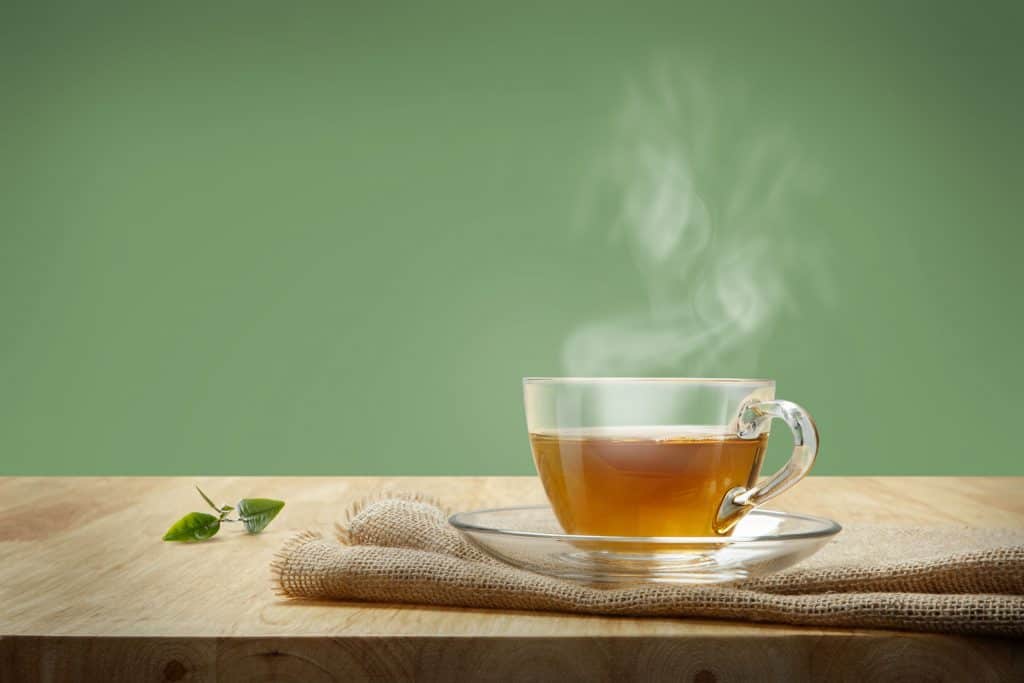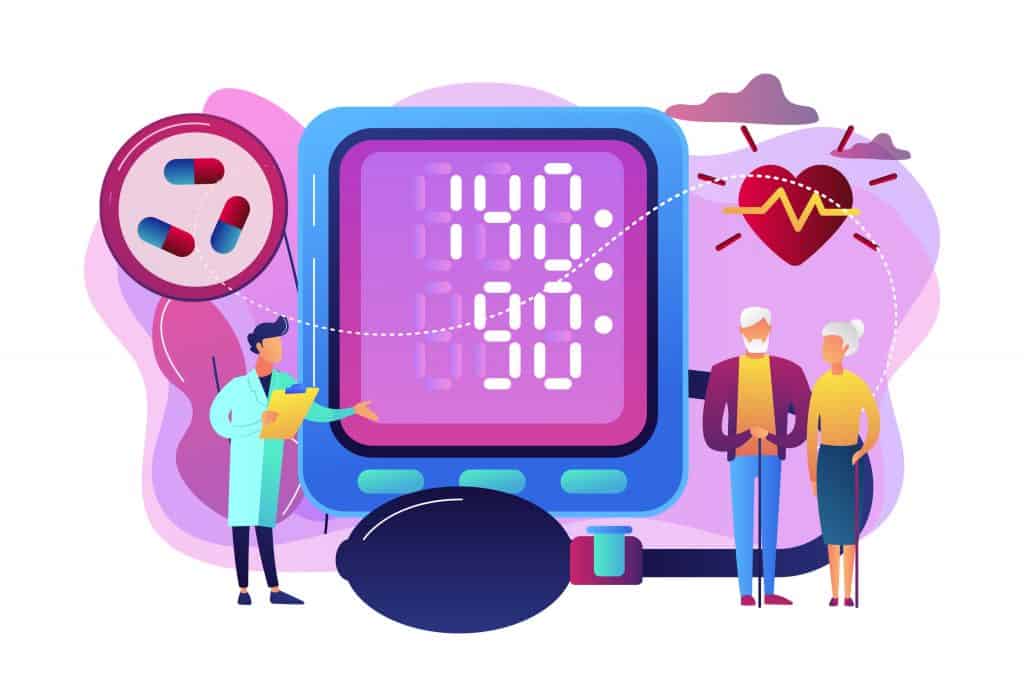Does Green Tea Raise Blood Pressure? A Green Tea Guide
Posted by Prescription Hope - See Editorial Guidelines (Last Updated On: Mon Jul 10 2023)
Many people suffer from blood pressure issues, and many things can affect blood pressure. Is green tea one of the factors we should consider, and does green tea raise blood pressure? Or have little to no effect?
This article provides an overview of green tea and how it may affect blood pressure and other options to consider with your green tea. Let’s begin with a quick summary.
Does green tea raise blood pressure? For green tea to raise blood pressure, the effects tend to come from its caffeine content. Caffeine in green tea blocks a hormone that widens arteries, thereby raising blood pressure. Others may say it’s the adrenaline evoked by caffeine that raises blood pressure.
Views on green tea raising blood pressure vary, so let’s get into this topic further…

How green tea raises blood pressure

It is thought that the caffeine content in green tea is responsible for causing a rise in blood pressure.
For those who are unaware, green tea is not caffeine-free, although some market it as so. Green tea has some caffeine content, although not as much as coffee.
On average, one cup of green tea (8 oz.) contains 35 mg of caffeine.
Considering just the caffeine element of green tea, it generally causes a short and temporary, but dramatic increase in your blood pressure.
This spike is experienced even among those who are not predisposed to high blood pressure.
If you are looking at improving your blood pressure, you might want to consider our list of morning drinks for high blood pressure.
So does green tea raise blood pressure?
The caffeine content in green tea is significantly more likely to raise blood pressure in people who have blood pressure issues already – or those who are more sensitive to caffeine.
Similarly, people who regularly drink caffeinated drinks have a higher average blood pressure than those who don’t.
This highlights the overall effect caffeine can have in raising blood pressure.
By contrast, some may also develop a greater tolerance toward caffeine if they drink it regularly. This tolerance can reduce the effects of caffeine in raising your blood pressure.
It’s still unclear how the caffeine content in green tea or any beverage, in general, raises blood pressure.
Some believe that caffeine blocks a hormone that keeps your arteries at a healthy width. This then causes more narrow arteries, creating pressure, which then results in higher blood pressure. As well as other issues such as bloating.
Others hold the belief that caffeine causes your adrenal glands to release more adrenaline, which raises your blood pressure.

How to prevent green tea from raising your blood pressure
As discussed above, it appears that the caffeine content in green tea is responsible for causing a rise in blood pressure.
The average caffeine content in a cup of green tea 8 Oz (230ml) is 35mg. However, the caffeine content can vary depending on the quality of the tea. So, check the label and try to find a green tea that has minimal caffeine in it.
You can also avoid letting the tea from steeping for too long. The longer the tea has to steep, the more concentrated the tea can become, potentially increasing the caffeine content.

Avoid adding sugar to your green tea also. Sugar has been directly associated with increased blood pressure.
How green tea can lower blood pressure
Despite the caffeine content in green tea potentially causing a rise in blood pressure, some studies say that green tea overall can lower blood pressure.
For example, one of the benefits of drinking green tea tends to be relaxation. In fact, there are numerous benefits from drinking loose leaf tea.
It’s believed that these relaxation properties help in widening the arteries and thereby decrease blood pressure.
The element that supports relaxation from green tea is credited to L-theanine.
The catechin compound in green tea may also relax the smooth muscles that line the blood vessels.
According to population research on Chinese people, it’s shown that drinking around 120-599 ml of green tea can lower the risk of developing high blood pressure.
Similarly drinking around 600ml daily can lower this risk even further.
Research also suggests that drinking green tea, or green tea extract, for three months daily can reduce blood pressure for those with high blood pressure.
This scenario is thought to be true even for people who drink green tea three times a day for four weeks.
It has been shown that green tea can reduce systolic and diastolic blood pressure by 3.2mmHga, and 3.4mmHg respectively.
This reduction is experienced by people with and without high blood pressure.
In contrast, some small studies have shown that green tea does not affect blood pressure at all.
This may be due to the fact that consuming greater quantities of caffeine may negate these effects.

Closing thoughts
We hope this article gives you a better understanding of the relationship between green tea and blood pressure.
If you have problems controlling your blood pressure, then consult your healthcare provider about what can affect your levels.
If you have been prescribed blood pressure medications and are looking to save money, then Prescription Hope may be able to help…
For more questions regarding your specific condition, always consult your healthcare provider.
If you’re having trouble affording any of the medications you’ve been prescribed, visit our home page to learn more about Prescription Hope’s medication access service, compare the costs of your current prescriptions, and see how we can help obtain your medications at a cheaper price. Fill out an application today and start receiving Brand-Name prescription medications at your doorstep. Call us at 1-877-296-HOPE (4673) to speak to one of our representatives, we’re always happy to see how we can help.

